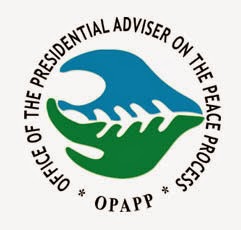
COTABATO CITY – Senator Teofisto Guingona III and Autonomous Region in Muslim Mindanao (ARMM) Governor Mujiv Hataman hailed the signing of the Annex on Power Sharing between the Philippine government and the Moro Islamic Liberation Front – kindling high hopes for a signing of the comprehensive peace deal early next year.
Hataman lauded the “breakthrough in the peace negotiations” and asked the public carry on their support to the southern peace talks.
“The signing of the Annex on Power Sharing leaves the issue on Normalization as the only remaining annex on the negotiating table. This brings us closer to a final peace deal,” he said, referring to the annexes that will complete the Framework Agreement on the Bangsamoro and eventually the comprehensive peace deal.
“We appeal to all stakeholders to support the ongoing peace negotiations so that we can successfully gear towards its final conclusion. The ARMM government reiterates its support to the Mindanao peace agenda and assures our people that we will give way in case of a peace agreement,” he added.
Guingona expressed his admiration to the negotiators, saying that “despite the sensitivity of the issues, both panels were able to come up with a resolution that has now brought us ever closer to achieving lasting peace in the region.”
“We congratulate the Government of the Republic of the Philippines and the Moro Islamic Liberation Front panels in their commitment to consolidate consensus and reconcile contending positions, and come to an exclusive agreement on the issue of power sharing,” he said.
With only one more annex left to be passed by the panels, Guingona said: “I look forward to sponsoring the Bangsamoro Basic Law in the Senate.”
Peace negotiators of the government and the MILF have agreed to the sharing scheme that will be exercised by the central government and the future ministerial-form Bangsamoro government during their formal meeting in Kuala Lumpur on Sunday.
On the signed 12-page annex, the parties have agreed that the new Bangsamoro region will be in the form of a ministerial government with 50 members whose district, party-list, reserved seats, and sectoral constituencies shall be provided in the Bangsamoro Basic Law.
The Bangsamoro government structure will have a chief minister or equivalent to the regional governor, and a deputy chief minister, and other cabinet officials.
A unique body was also introduced in the power-sharing agreement with the creation of the Bangsamoro council of leaders that will help in the governance. The chief minister, provincial governors, mayors of chartered cities, and a representative from each of the non-Moro indigenous communities, women, settler communities, and other sectors will lead the council.
The agreement also underscored what particular powers are “reserved” for the central government and “exclusive” to the Bangsamoro ministerial government. This is on top of the powers that the central government and the Bangsamoro will be shared as “concurrent powers.”
The agreement showed the commitment of the two sides to address clamor of the Bangsamoro people for self-determination by giving them enough authority to govern their ancestral lands.
